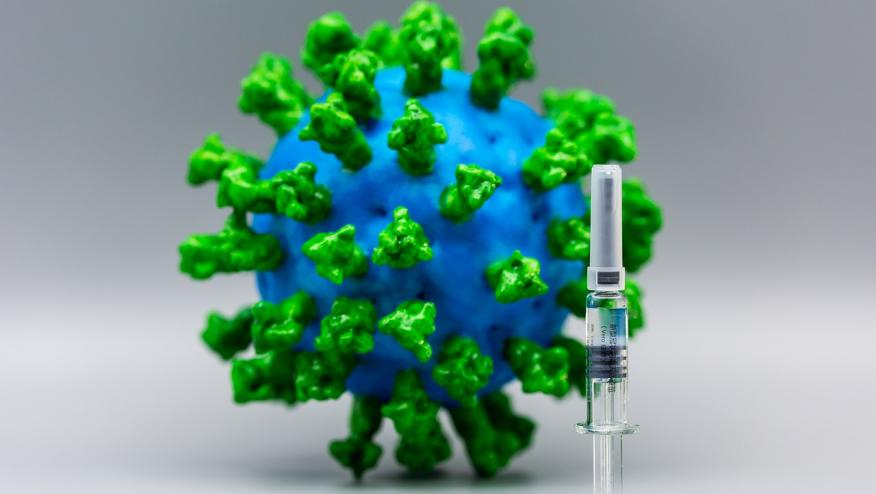COVID-19 Vaccine Responses in Rheumatic Disease Patients Save

Nature Reviews Rheumatology features a review of three notable papers that address the impact of SARS-CoV-2 vaccination on people with inflammatory rheumatic disease.
Studies on the efficacy and safety of the COVID-19 vaccines, have shown rapid and strong development of immunity in healthy populations. Unfortunately, patients with inflammatory rheumatic disease (IRD) were excluded from participation in the large registration trials for the vaccines. Thus, the effectiveness and safety of vaccination in these vulnerable individuals was therefore not known.
Fortunately, in 2021 several reports showed thta patients with IRDs and other immune-mediated inflammatory diseases (IMIDs) had high seroconversion rates. While many patients taking many drugs had sufficient responses, several reports suggested that rituximab, mycophenolate, cyclophosphamide, methotrexate, abatacept and glucocorticoids, especially at higher doses, could impair humoral vaccination responses, And others questioning whether certain medications should be paused before, during or after vaccination. Moreover, early evidence indicated that patients on rituximab therapy were at an increased risk of severe and potentially fatal outcomes of SARS-CoV-2 infection, and that persistent depletion of B cells is associated with an insufficient vaccine response.
Recent reports in 2022 have addressed these issues.
- Wieske et al. studied humoral immune responses after second and third vaccinations against SARS-CoV-2 in in IMIDs and IRD patients on immunomodulatory and/or immunosuppressive drugs alone or in combination. They found the humoral immune responses in these individuals did not vary according to the different diseases. Their report indicates that the risk of infection and the development of severe disease is not increased for people with IRDs. Yet, they found that seroconversion is achieved was hampered by therapy with mycophenolate, spingosine-1-phosphate inhibitors or rituximab.
- Jyssum et al. studied humoral and cellular immunity in COVID vaccinated patients receiving rituximab therapy for RA. Seroconversion was impaired and was a function of the time interval since the last rituximab administration. Although the humoral aspect of the vaccine response was impaired, cellular responses were not. These data demonstrate the divergent dynamics of humoral and cellular anti-SARS-CoV-2 immune responses in patients receiving rituximab therapy, and they also show that even in the absence of a measurable humoral immune response, a protective T cell response develops in most people. Discontinuation of a medically advisable rituximab therapy, therefore, does not seem to be necessary to address concerns about a lack of immunological protection against SARS-CoV-2.










If you are a health practitioner, you may Login/Register to comment.
Due to the nature of these comment forums, only health practitioners are allowed to comment at this time.